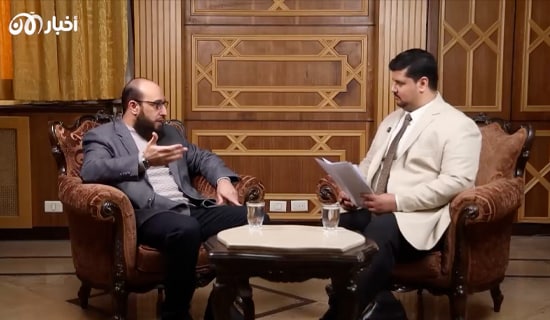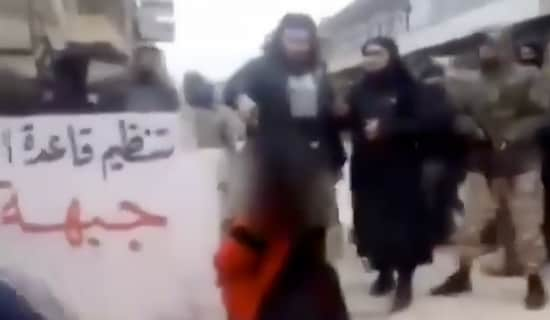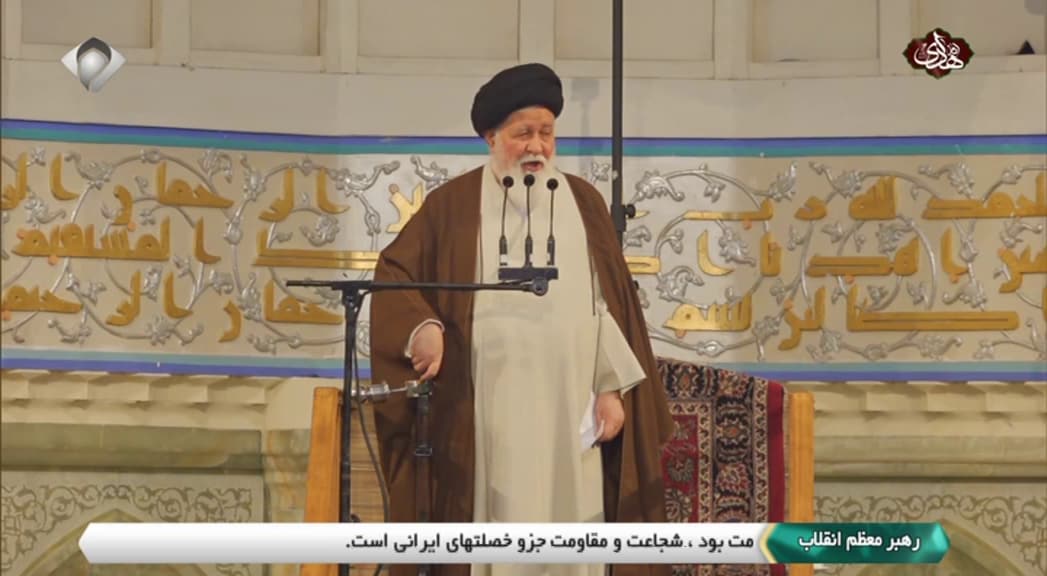
In an in-depth interview, Saudi Deputy Crown Prince Mohammad bin Salman Al Saud rejected the possibility of any dialogue with Iran, asking how they could possibly reach an understanding with a country that is based on an "extremist ideology" and believes that it must "take control of the Muslim world." Al Saud, who serves as his country's defense minister, said: "We will not wait for the war to be waged on Saudi soil. We will make sure that the war is waged in Iran and not in Saudi Arabia." On the Houthi threat, Al Saud said that Saudi Arabia had the ability to "eradicate the forces of Al-Houthi and Ali Abdallah Saleh in just a few days." On the situation in Syria, he warned that any friction between the superpowers could trigger a crisis that extends beyond the Middle East, and said that President Obama had "missed many important opportunities to make significant change in Syria." He also affirmed the strength of Saudi-Egyptian relations, which were "as deeply rooted as ties between countries can be." The interview was broadcast by Saudi Arabia's Channel 1 and another Saudi TV channel on May 2.
Mohammed bin Salman al-Saud: "The war (in Yemen) was not the preferred choice of Saudi Arabia. It was something that we had to do, because the alternative scenario was much worse. First of all, a coup was staged against the legitimate government by militias that we deem to be terrorist, and with which we had a bad experience in 2009. Second, these militias posed a threat to international maritime navigation, and to all of Yemen's neighbors. Third, the terrorist activity on the other side of Yemen, in the south, had begun to thrive, making use of the situation with those militias. If we had waited even a little bit, the situation would have become more complicated, and the danger would have spread to Saudi Arabia and other countries in the region, as well as to important international border crossings. This was out of the question, as far as we were concerned. I believe that the Saudi Armed Forces have had great success. When the operations began, the legitimate Yemeni government had no control over its lands. Today it controls 80-85% of the country's territory. Meanwhile there is another coalition, north of Saudi Arabia, in Iraq and Syria, fighting ISIS, which controls part of Iraq... That coalition, which consists of 60 countries and is led by the United States, was formed in 2014 - one year before our coalition - but to this day..."
Interviewer: "They haven’t solved a thing."
Al-Saud: "Right, nothing.
[…]
Al-Saud: "We could eradicate (the forces of) Al-Houthi and Saleh in just a few days. We could mobilize the Saudi ground forces, and within just a few days, all by themselves, they could storm the 25% of the land still under the control of al-Houthi and Saleh. But this would come at the price of thousands of casualties among our forces - with mourning tents in every Saudi city - and there would be many civilian casualties among the Yemenis, as well as great damage. Time is on our side. It is in our best interest to be patient. We have supplies, all the necessary logistics, and a high morale, whereas the enemy does not have supplies, money or the same endurance as us. Time is on our side, so we use it to our benefit.
[…]
Al-Saud: Saudi-Egyptian relations are firm, strong, and as deeply rooted as ties between countries can be. These relations have not been impaired in any way. Throughout history, Egypt and Saudi Arabia have stood by one another in all circumstances. This has not changed."
[…]
Interviewer: "Your Royal Highness, can there be direct dialogue with Iran in the future, despite all that it has been doing in the region?"
Al-Saud: "How can you reach any understanding with a person, or a regime, which holds a firm conviction in the extremist ideology on which it is based, which appears in the constitution and in Khomeini's legacy, according to which they must take control of the Muslim world, and spread their Twelver Jaafari ideology throughout the Islamic world, until the appearance of the Mahdi? How could I possibly convince somebody like that? What common interests do I share with him? How can I reach an understanding with him? When I have a problem with another country, we try to resolve it.
"If it is an economic problem - what do you want? What do we want? How can we reach an understanding? If we have political problem, for example, with Russia over Syria, we try to reach an understanding: What are your interests? What are mine? The same is true regarding Yemen. But how can we possibly reach an understanding with (Iran)? According to the logic of Iran, the Mahdi is expected to come, and they must prepare the ground for his coming, by taking control of the Islamic world. They have denied their people more than 30 years of development - subjecting them to famine and poor infrastructure - in order to accomplish that goal. They will not change their mind overnight, and their legitimacy within Iran will not be over. What are the common denominators on which we could agree with that regime? There are practically none. We tried (a dialogue with) that regime more than once in the past. We tried it with Rafsanjani, and it turned out to be nothing but a show. After the Khomeini revolution, they began their expansion, enraging the world, and then they brought forth the peaceful leader, Rafsanjani, in order to win the trust of the world - indeed, he even won our trust - and after establishing a new phase, with an agreeable environment, they brought forth an extremist leader, who would continue the expansion. We have seen this with Ahmadinejad ... and he stayed in power eight years, not four. They spread in Iraq, Syria and elsewhere. Then came a (peaceful) leader, who could preserve their achievements by making the world happy, before another extremist leader will rise, in order to continue the expansion."
Interviewer: "They take turns..."
Al-Saud: This will not happen again. It's over. Once bitten, twice shy. We were bitten once but it will not happen again. We know that we are a primary goal of the Iranian regime. Reaching the Kaaba is a main goal of the Iranian regime. But we will not wait for the war to be waged on Saudi Soil. We will make sure that the war is waged in Iran and not in Saudi Arabia."
Interviewer: "We have less than two minutes left. How do you view the solution in Syria?"
Al-Saud: "The situation in Syria is undoubtedly very complicated. There is no doubt that former U.S. president Barack Obama missed many important opportunities to make significant change in Syria. Today, Syria has become an international case. Russia, which is a superpower, is there. The U.S. is there. All five superpowers are there. Any friction between these superpowers might cause a crisis much bigger than the Middle East crisis. The situation is very complicated. Today, we are trying to benefit as much as possible, for the sake of Saudi interests, as well as the interests of the Syrian people and the countries of the region."













